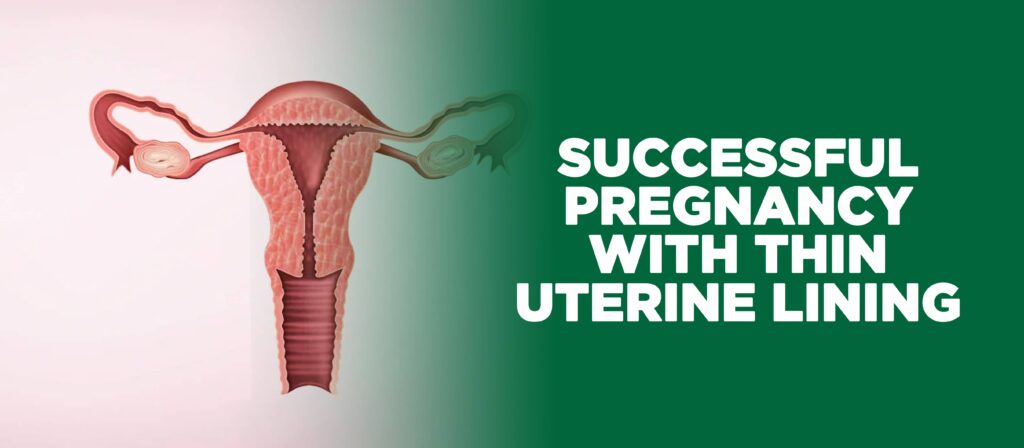For women trying to conceive, a thin uterine lining can pose challenges in achieving a successful pregnancy. The uterine lining plays a crucial role in implantation, and its thickness is a key factor in supporting a growing embryo.
While a thin uterine lining can be concerning, there are various causes, treatments, and lifestyle changes to increase the chances of pregnancy. In this blog, we will delve into the causes of a thin uterine lining, explore effective treatments, and provide helpful tips for optimizing uterine health.
Understanding Thin Uterine Lining
The uterine lining, also known as the endometrium, is the innermost layer of the uterus. During a typical menstrual cycle, this lining thickens to encourage the implantation of a fertilized egg. However, in some cases, the uterine lining may remain thin, making it less conducive for successful embryo implantation.
Causes of Thin Uterine Lining
Several factors can contribute to a thin uterine linin
- Hormonal Imbalance: Fluctuations in estrogen and progesterone levels during the menstrual cycle can affect the growth of the uterine lining.
- Poor Blood Flow: This can result in reduced nourishment and thickness of the uterine lining.
- Uterine Scarring: Prior surgeries or infections may cause scarring that can impact the development of the uterine lining.
- Age: As women age, their hormone levels can decline, potentially affecting the thickness of the uterine lining.
- Chronic Conditions: Certain medical conditions, such as infections can contribute to a thin uterine lining.
Successful Pregnancy with Thin Uterine Lining
- Hormonal Support: In cases of hormonal imbalance, fertility specialists may prescribe medications to regulate hormone levels, such as estrogen and progesterone, to promote uterine lining growth.
- Uterine Blood Flow Enhancers: Medications and supplements like Sildenafil or L-arginine may be used to increase blood flow and improve the thickness of the uterine lining.
- Intrauterine Infusions: For severe cases of thin uterine lining, an intrauterine infusion of a GCSF or human growth hormone may be recommended to promote lining growth.
- Acupuncture and Herbal Remedies: Some women find relief through alternative therapies like acupuncture and herbal supplements, which may help improve uterine health.
Tips for Optimizing Uterine Health
While undergoing treatments, you can also take proactive steps to optimise your uterine health and support a successful pregnancy:
- Adopt a Healthy Diet: Focus on a balanced diet to provide essential nutrients for uterine health.
- Stay Hydrated: Drink an adequate amount of water every day for good blood flow and nourishment to the uterus.
- Manage Stress: Chronic stress can affect overall reproductive health. Engage in relaxation techniques like yoga, meditation, or deep breathing to reduce stress.
- Regular Exercise: Moderate physical activity can enhance blood circulation and support overall well-being.
- Avoid Tobacco and Excessive Alcohol: Smoking and excessive alcohol consumption can negatively impact fertility and uterine health.
Conclusion
Identifying the underlying causes and working with a fertility specialist can pave the way for appropriate interventions in case of thin uterine lining and our doctor at Plan B Fertility could be just the expert guidance you need . By taking steps to optimize uterine health and addressing any contributing factors, women can improve their prospects for a successful pregnancy and embrace the joys of motherhood.
